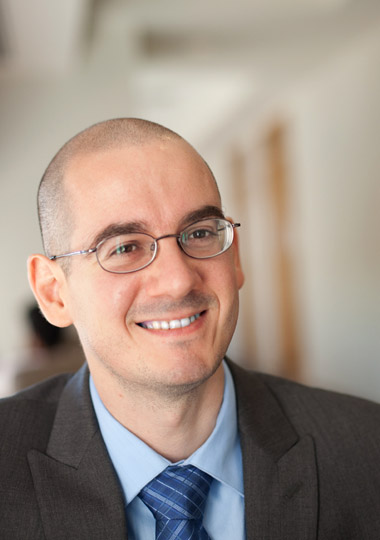
I am an Economist and Data Scientist in the Pricing Algorithms team at Wayfair, where I use causal inference, machine learning and applied econometrics to optimize pricing. Before then, I was an Associate Professor of Applied Economics at Johns Hopkins University Carey Business School where I studied how social and strategic interactions shape individual and aggregate socioeconomic outcomes, using a mix of economic theory, econometrics, machine learning, applied probability and computational methods. I also had affiliations at the Hopkins Population Center, the Institute for Data Intensive Engineering and Science and the Data Science and AI Institute.
Email: meleangelo@gmail.com
News
Summer 2025: I joined Wayfair as an Economist.
April 2025: Seminar at George Mason University, Department of Statistics
November 2024: New version of the paper on software networks, with new title Vulnerability Webs: Systemic Risk in Software Networks
November 15, 2024: Seminar presentation at University of Glasgow
November 5, 2024: Seminar at Tippie School of Business - University of Iowa
October 2024: Presented 2 papers at Midwest Econometrics Group 2024 at University of Kentucky
August 2024: Presentation at ESIF ML+AI Conference in Cornell
July 2024: Presentation at Workshop on Empirical Estimation of Games in Stony Brook
June 2024: Paper on software networks was presented at EC24 in Yale
April 2024: Presented at the Conference on Peer Effects and Networks at Tippie SChool of Business - University of Iowa
February 2024: New version of the working paper A Strategic Model of Software Dependency Networks with Co-Pierre Georg, Cornelius Fritz and Michael Schweinberger.
December 2023: I have finished my sabbatical at UPENN and I am back to JHU Carey.
August 2023: I started my sabbatical at UPENN Economics Department.
August 2023: A model of inter-organizational network formation (with Shweta Gaonkar) has been accepted at Journal of Economic Behavior and Organization. We study a model of network formation with application to the venture capital co-investment decisions. We also show how entry or minimum capital requirements modify the structure of the network, by simulating the estimated model in these couterfactual scenarios.
May 2023: Homophily and Community Structure at Scale: An Application to a Large Professional Network, (with Juan Nelson Martinez Dahbura, Shota Komatsu and Takanori Nishida), is now out in AEA Papers and Proceedings 2023. We study the formation of professional networks using data from Eight, a contact management and social network app from Sansan, Inc. in Japan. We find homophily and shared contacts are the main determinants of professional contacts, using a structural modeling approach and a scalable estimation method for large networks.
April 2023: I have received an IDIES Seed Funding Grant to study software dependency networks (with Co-Pierre Georg).
January 2023: Approximate Variational Estimation for a Model of Network Formation with Lingjiong Zhu, is now out in the Review of Economics and Statistics 105 (1): 113–124. We show that a mean-field variational approximation of the ERGM normalizing constant has vanishingly small error in large networks. We suggest a simple iterative algorithm to estimate the model that scales in order \(n^2\) steps.
January 2023: New paper Homophily and Community Structure at Scale: An Application to a Large Professional Network with Juan Nelson Martinez Dahbura, Shota Komatsu and Takanori Nishida, forthcoming at AEA Papers and Proceedings. We study the formation of professional networks using data from Eight, a contact management and social network app from Sansan, Inc. in Japan. We find homophily and shared contacts are the main determinants of professional contacts, using a structural modeling approach and a scalable estimation method for large networks.
January 2023: New working paper A Strategic Model of Software Dependency Networks with Co-Pierre Georg. We study the emergence of dependency networks among software packages, guided by a structural model of network formation. We find evidence that externalities, competition and homophily contribute to the shape of the dependency network.
October 2022: Our paper Spectral estimation of large stochastic blockmodels with discrete nodal covariateswith Lingxin Hao, Joshua Cape and Carey Priebe, is forthcoming at Journal of Business and Economic Statistics. We show that we can estimate SBMs with discrete nodal covariates using Adjacency Spectral Embeddings (ASE). This method scales very well with the size of the network and faster than variational EM algorithms. We also provide a CLT for the estimated covariate parameters. Works well in a random effect approach, and for most (nondegenerate) fixed effects approaches.